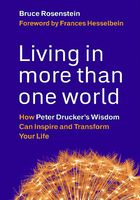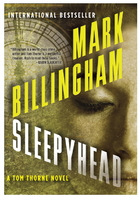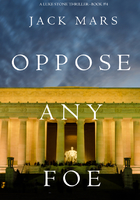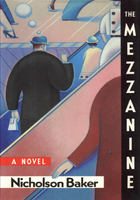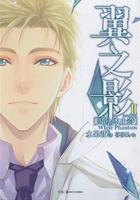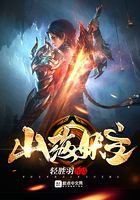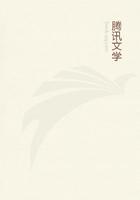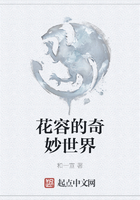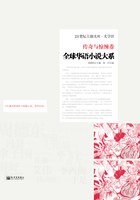Notes from a Practicing Heart
We will see
That day…
When the cruel mountains of injustice will blow away like cotton-wool…
We will see
-from Hum Dekhenge, by Faiz Ahmed Faiz
Since 1942 my family has fled from our home four times, leapfrogging from India across continents, twice within my own lifetime. On three occasions we witnessed civil war, communal violence, and mass murder. Each time, we've had to rebuild our lives, having left virtually everything behind. The fourth move came as tanks were rolling into Kuwait not far from where we lived, in the first Gulf War.
My childhood memories begin in 1970s South London. They include my uncle coming home out of breath and covered in blood after being attacked by skinheads on his way back from work. He moved back to Karachi soon after that, where he has been living happily since. In 1980 we moved peacefully from London to New Delhi, after a year in Bombay. My parents had decided that we needed to widen our horizons beyond Margaret Thatcher's Britain.
A few years after we moved to New Delhi, the Indian prime minister, Indira Gandhi, was assassinated by her Sikh bodyguards. Widespread communal riots followed. I remember looking out of a car window toward a burning house, set on fire by rioters. In my mind, I can still see the slow movement of the curtains on fire and the shimmering flames pouring out of the window. Seeing black scorch marks on the New Delhi pavement, I remember asking what they were and my shock at the answer. Roving mobs had targeted members of the Sikh community, dragged people on to the streets, and set fire to them. I remember my parents making the decision to leave India with the words, "This place hasn't changed."
We moved to the United Arab Emirates, where we spent several largely uneventful years. Then Saddam Hussein invaded Kuwait, launching the first Gulf War. I remember craning my neck out of my bedroom window in the middle of the night to watch US military convoys pass by, sometimes taking hours to pass. I remember playing Ping-Pong with GIs on shore leave, most of them only a few years older than me. I remember tuning into US Armed Forces Radio after everyone had gone to bed and listening to bands singing US college hits.
There are numerous stories, told over the years by my grandmother and great uncles and aunts of the Partition of India, leading to the creation of Pakistan, when a million people died. Our community was split across the subcontinent and beyond. Then from my parents and uncles and aunts came the stories of the civil war that led to the creation of Bangladesh. I remember feeling an underlying frisson of adrenalin in talking about such bloodshed and the experience of surviving, of being here and not there.
My entire life I've reflected on the universal nature of conflict and loss, and why such events transpire. I've pondered the sequences of events that bring them about and asked what we can do to ensure they don't happen again.
In seeking the answer to these questions I've been driven, sometimes reluctantly, to take on many different roles. Throughout my time as a student, an apprentice, a dot-com entrepreneur, an activist, a writer, a facilitator, a consultant, a process designer, and a strategist, I've reflected on the experiences I've been blessed with and on my own practice with a view to understanding and preventing violent conflict. I've written down these lessons. Each phase of my journey has contributed, in unexpected ways, to a practice focused on effectively addressing complex social challenges. This book represents a summing up of what I have learned so far.
My aim in writing this book is to address the question of what it takes to tackle our most profound social, environmental, and political challenges in practice.
My experiences and reflections over the years have led me to conclude that violent conflict is a largely avoidable product of ineffective approaches to complex social issues. Dominant efforts to address our most serious challenges waste precious resources, time, and talent. These planning-based approaches-so common across government, civil society, and even business-represent a neo-Soviet paradigm, one that is spectacularly out of step with what we now know about complexity, about systems, about networks, and about how change happens. Another approach is needed.
This book has four core goals:
1. To make the case that the planning-based approach of addressing complex social challenges leads to certain widespread social collapse.
2. To describe the principles of social labs-a new, more effective prototyping-based approach for addressing complex social challenges.
3. To describe the practice of social labs through an account of two "first generation" social labs, demonstrating their effectiveness.
4. To outline a practical theory of systemic action that can be used to design next-generation social labs.
In 2004 I started working for Generon Consulting, a small, highly innovative Boston-based organization. Generon's unofficial, courageous, and insane mission was to address "ten global problems in ten years." The means to achieving this mission was the Change Lab, a prototype social lab that Generon developed working with others in the Boston/MIT/Society for Organizational Learning (SoL) community. The following years were spent conceiving, convening, designing, and running social labs around the world. Some of these succeeded wildly; others failed painfully.
During this time I read hundreds of books on social change and group processes in an effort to grasp the foundations of the approach we were undertaking. I produced a number of documents and a few articles. I also wrote hundreds and hundreds of pages of journal entries filling a couple of shelves of black Moleskine notebooks.
In early 2007, I helped cofound a successor organization to Generon called Reos Partners. Reos is derived from the Greek word rheos meaning flow, the opposite of stuck. Since then, we have continued to develop the work started with Generon. Designed to be international from the outset, Reos currently has offices in eight cities around the world. In addition to consulting work, Reos focuses on capacity building and launching new labs.
In this decade we have convened many thousands of stakeholders, including CEOs of global corporations, young executives, ministers, civil servants, civic leaders, and grassroots activists. We have worked on all continents on issues as diverse as global food systems, climate change, child protection, public health care, community development, and making financial systems more sustainable.
The materials I have drawn on to write this book come from work conducted by my colleagues at Generon Consulting, Reos Partners, and the wider community that we are a part of.
While I see our work as being on the cutting edge, I'm also deeply conscious of the bleeding edge, a place where my colleagues and I struggle with gaps in our practice. This bleeding-edge practice is explored later in this book through the idea of next-generation laboratories.
The approach taken to write this book is formally known as an inductive approach to research, resulting in what is known as grounded theory.[1] The principle behind inductive approaches is that in the particular lies the universal, which means examining specific experiences and drawing general conclusions from them. The theory of action outlined in this book is directly built on my experiences running multiple "first generation" social labs.
This book aspires to tell a story, the story of our greatest challenges and how we might address them. This story unfolds in three parts.
The first part concerns the unique nature of the challenges we as humanity are facing. Chapters 1 and 2 explore why these challenges are different from those of the past and why planning-based responses to complex challenges fail.
The second part outlines the struggle to come up with a better response. Chapters 3 and 4 show two social labs-the Sustainable Food Lab, focused on the global food system, and the Bhavishya Lab, focused on child malnutrition in India. Chapter 5 discusses the results of first-generation social labs, outlines a new framework for understanding these results, and begins articulating the broader implications of these experiences.
The third part of this story goes further in sketching out the general implications of the social-labs approach. Chapter 6 explains why this approach is effective at addressing complex social challenges and introduces the rise of a new type of practitioner, the agilista. Chapter 7 outlines steps toward a theory of systemic action built on a decade of prototyping social labs. Chapter 8 shows how to start social labs in seven steps. Finally, the conclusion outlines a number of next-generation social laboratories and offers a broad vision of how some of our most serious challenges might be solved.


